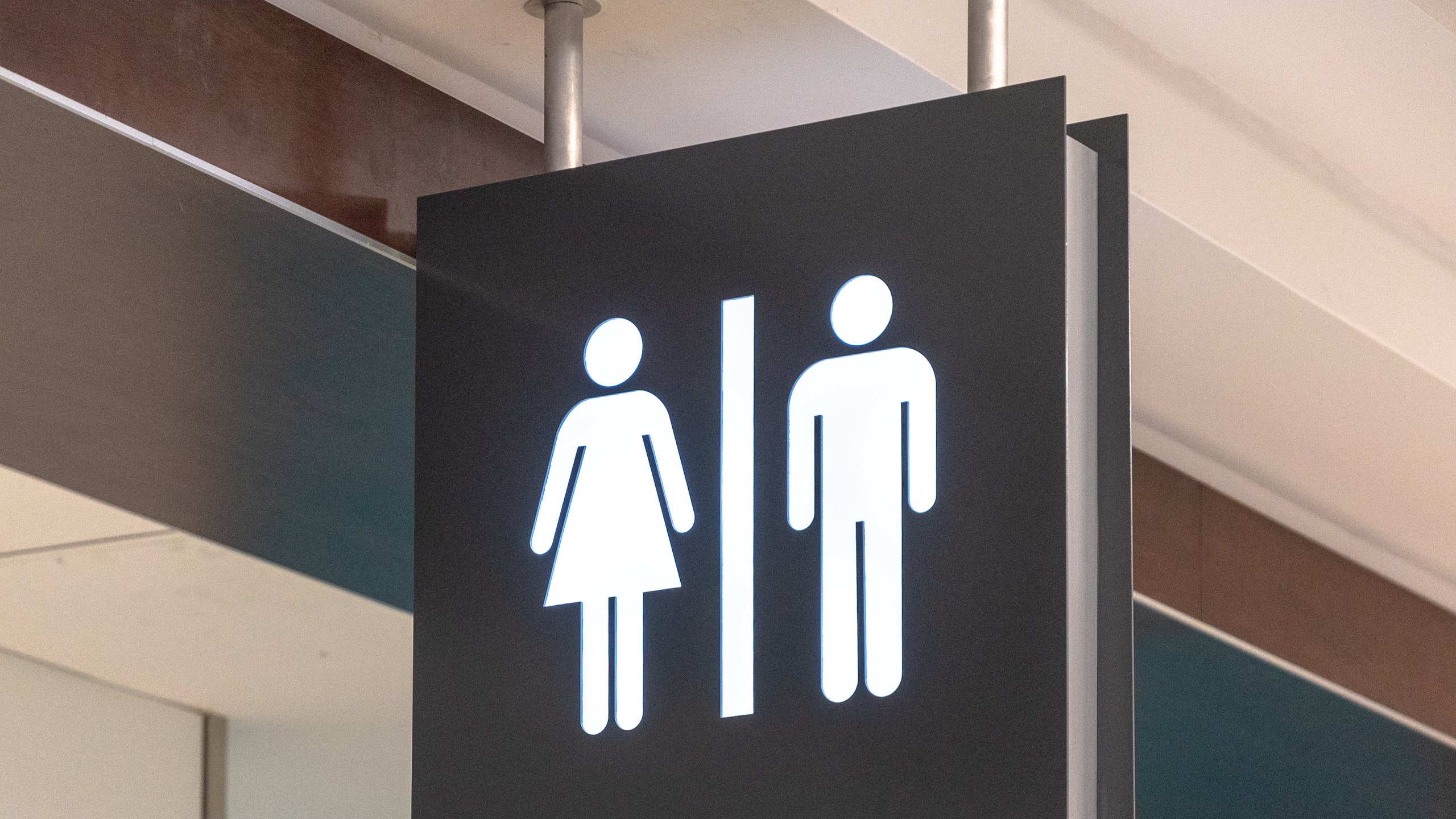Tennessee’s new law shaming businesses that allow trans people to use gender-affirming bathrooms has already hit a roadblock: No one wants to actually enforce it.
In a Monday statement to the Associated Press, Nashville District Attorney General Glenn Funk signaled he would not prosecute businesses that refuse to comply with House Bill 1182, which was quietly signed into law last week. The bill forces bars, restaurants, and other venues with inclusive restroom policies to hang signs warning members of the general public: “This facility maintains a policy of allowing the use of restrooms by either biological sex, regardless of the designation on the restroom.”
“I believe every person is welcome and valued in Nashville,” Funk said in opposition to the law’s passage. “Enforcement of transphobic or homophobic laws is contrary to those values. My office will not promote hate.”
Others claimed that the text of HB 1182 doesn’t even actually mandate a mechanism for enforcement. Tennessee State Representative Tim Rudd (R-34th District), who authored the bill, told House lawmakers earlier this year that individuals could bring lawsuits against businesses that don’t follow the law or that DAs could take action, according to the AP.
While Rudd said at the time that the legislation “does not provide any fines or penalties” against trans-inclusive establishments, that is no longer true. In comments to the Chattanooga Times Free Press, Rudd said violators could be fined up to $500 and face up to 6 months in jail.
Businesses would reportedly have 30 days after July 1 to come into compliance with the code before penalties are enforced. The charge would be a misdemeanor offense.
But Amy Weirich, the district attorney for Shelby County, said that HB 1182 doesn’t map out a legal pathway for her office to compel businesses to observe the order. “The way it’s written, I don’t see anything that allows or provides me the responsibility or right to go to civil court and ask a judge to enforce it,” Weirich, whose office has jurisdiction over the majority of Memphis, told the AP.
Even if Funk and Weirich were keen on fully executing HB 1182 to the letter of the law, the legislation has powerful opponents. Shortly after Tennessee Governor Bill Lee signed the legislation last Monday, Nashville Mayor John Cooper called the law “part of an anti-LGBT political platform of hate and division.”
“One of the risks for Nashville is that the hostility inherent to these signs can be the equivalent of hanging up another sign: a ‘Do not come here’ sign,” he said in a statement to The Tennessean newspaper. “We are an inclusive city, and that won’t change.”
HB 1182 isn’t the first anti-LGBTQ+ measure to cause a major headache for Tennessee this year. After Lee approved a bill in April banning all trans student athletes from competing in accordance with their gender identity, critics noted that the legislation causes the exact problem it hoped to address. Under Senate Bill 228, cisgender girls would be forced t0 compete against boys like Mack Beggs, a trans male wrestler in Texas who won two consecutive women’s state titles in 2017 and 2018.
Overall, Tennessee has enacted 5 anti-LGBTQ+ laws this year. These include bills allowing parents to opt students out of queer-inclusive education, banning trans students from using gender-congruent restrooms in schools, and limiting gender-affirming health care for “prepubertal minors.”
The latter measure will have little practical effect, though, as the vast majority of trans youth do not begin hormones and puberty blockers until puberty.
But despite the vast ineptitude of these efforts, parents of trans youth said the bills send the message they are not wanted. As in the case of Arkansas, which passed a sweeping trans medical ban in March, parent Julie Bandy said during a panel hosted by the Human Rights Campaign (HRC) she is considering moving to another state.
“We are extremely worried about her future should we remain in Tennessee,” said Bandy, whose daughter is trans, in comments reported by ABC affiliate WKRN, adding that the bills have put her family into “panic mode.”
A father of a transgender son, meanwhile, worried about the mental health impact on trans youth in the state, even those who might not be directly affected by the legislation. “At a time when indeed depression and suicide are at high rates for all young people… they’re doubling down on one of the most vulnerable and smallest demographics among us,” he added during the discussion.
Get the best of what’s queer. Sign up for them.'s weekly newsletter here.


